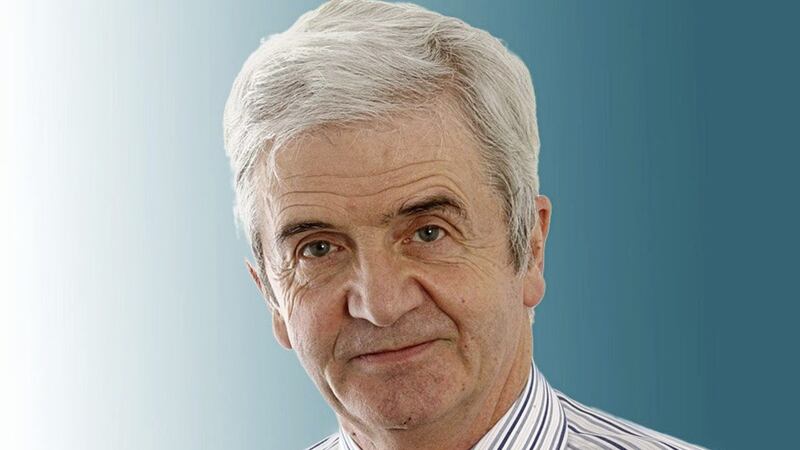This weekend sees an important skirmish in the battle for the soul of Ireland. On one side, headed by Leo Varadkar, is the Irish state, which in recent times has legalised contraception, divorce, same sex marriage and abortion, a departure from its traditional Catholic past.
Arriving to challenge at least some of that is another head of state, Pope Francis, leader of an embattled Catholic Church, which is currently experiencing what may be the world's greatest reputational meltdown.
So who will win between Leo, king of public relations and the papacy, which has traditionally relied on faith rather than image to deliver its message? The smart money is on the type of society which Leo represents, not because the Irish have lost their faith in a God, but because a significant number have lost faith in the Catholic Church.
As a result, the soul of Ireland is now secular rather than religious, a situation caused 30 per cent by a changing world and 70 per cent by the Church itself. Welcome to what might well be the Church's last hurrah in Ireland, unless Pope Francis can perform a miracle by tomorrow evening.
So how did it all go wrong? Like an air crash, the answer lies in one significant reason and a number of smaller factors. The Church's decline stems mainly from arrogance, defined as an overbearing self-righteousness by those who regard themselves as superior towards those they treat as inferior.
You may think that is a bit harsh, but it is a constant theme running through the Church's handling of universal child sex abuse. There are many priests, genuine and good people, who are far from arrogant, but the Church's culture has always elevated the clergy above the laity.
This is exemplified by older people in my parish, who described, in the past, walking three miles to Sunday Mass in the rain and arriving soaked to see three men, one carrying an umbrella, shepherding the priest across the road from the parochial house to the chapel. (The priest was not expected to carry his own umbrella.) Too many of the clergy were, or became, spoiled children.
That in itself would have been merely Unchristian, rather than a major structural problem. However, when it came to clerical wrongdoing, this inbuilt arrogance led to the shameful protection of the ordained at the expense of the ordinary, in what the FBI has identified "a series of practices" designed to conceal the truth. This time the bishops carried the umbrellas to shield the priests from justice.
A Pennsylvania Grand Jury Report last week revealed that 300 priests, who abused at least 1,000 children, and possibly thousands more, had their crimes concealed by Church leaders.
As a result, a former bishop in Pennsylvania, Cardinal Wuerl, withdrew from a scheduled appearance in Dublin this weekend, where he was to give the keynote address on the welfare of the family. Cardinal O'Malley of Boston also withdrew from chairing a discussion on safeguarding children and vulnerable adults. With that sort of background, one papal miracle might not be enough.
In view of the universal practice of cover-up, the papacy must bear responsibility for the Church's meltdown. It can only be assumed that at some point, someone in the Vatican decided that since child sexual abuse was a significant universal problem in the Church, it should be concealed to protect the organisation's reputation. (That's the same reputation which is now in tatters.)
If Pope Francis wants to restore the Church's credibility, he must reveal if this is what happened, how it happened and, most importantly, why it happened. Nothing less will do. No amount of apology or meeting victims can offset what was clearly the Church's universal policy of organised immorality and institutionalised illegality.
Secondary contributory factors to the Church's collapse include a belief that there existed an inexhaustible supply of faith-based loyalty; that bishops could tap into the well of doctrinal papal infallibility and borrow it for a more earthly immorality; a belief that God was on the Church's side and finally, the growth of education. (Exam question: if education contributed to the civil rights movement and the fall of unionism, did it do the same to the Irish Catholic Church?)
So unless Pope Francis can do something special, the soul of Ireland will remain secular, in defiance of a declining Church. In terms of ecclesiastical teaching, this suggests that Ireland is headed for hell and in one of those wonderful ironies which permeate Irish society, the Catholic Church has played a major role in leading the country to eternal damnation.
I wonder what God thinks of it all.









